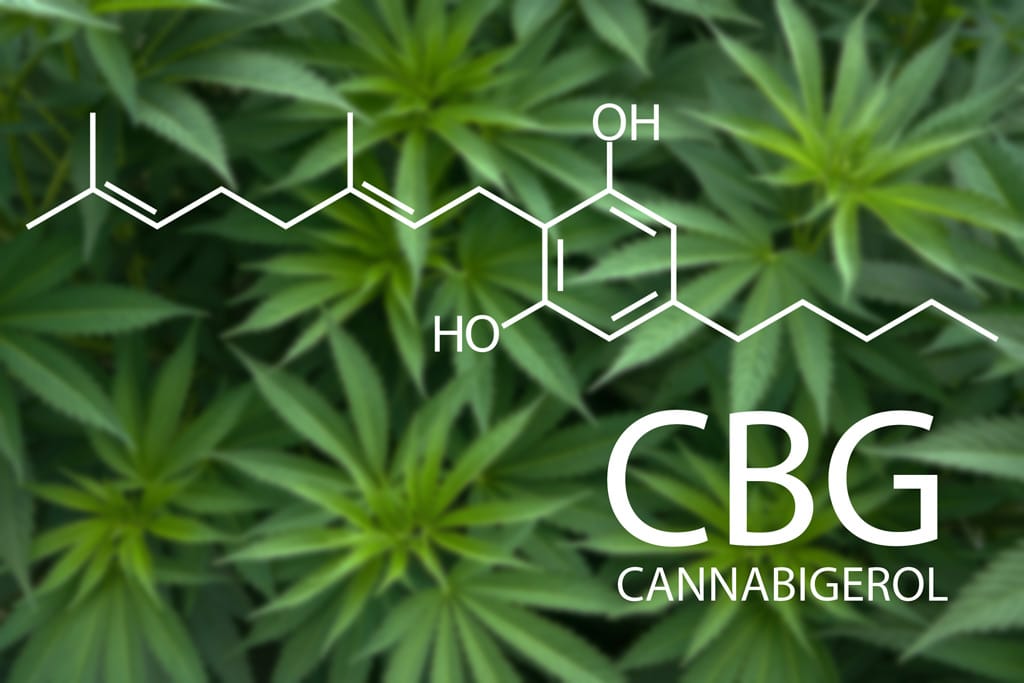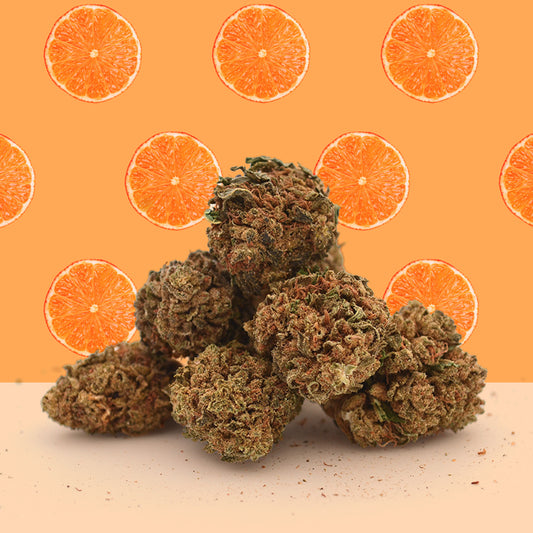Over the last few years, CBD has become well known to the general public and has gradually gained a good reputation. CBD and, in particular, CBD flowers, are gaining a growing following.
There are many reasons for this, not least the encouraging conclusions of numerous studies conducted to date on the benefits of CBD and, in particular, CBD flowers.
But what many users don't know is that there's another cannabinoid that may be just as worthy of their attention: Cannabigerol or CBG, which is different from CBD and THC.
The first thing to know about CBG is that, like CBD, it has no psychotropic properties. So, unlike THC, CBG does not make you "high".
As the plant grows, almost all the Cannabigerol (CBG) is transformed into other cannabinoids, such as THC and CBD, so that by the end of the growth process, plants contain only around 1% CBG. However, recent techniques have made it possible to retain a higher CBG content.
In 2010, a study carried out on mouse brain membranes revealed that Cannabigerol (CBG) acts as a powerful alpha-2 adrenoceptor agonist, making it similar to certain drugs prescribed to treat various forms of pain.
With regard to inflammatory bowel disease, the Department of Pharmacology at the University of Naples conducted a study on mice. Published in 2013, it led to the following conclusion: CBG, like CBD, is able to alleviate colitis, while " reducing nitric oxide production in [their] macrophages ". Based on these results, the researchers suggested that CBG and CBD could be considered as experimental treatments for inflammatory bowel disease.
Scientists have also highlighted the usefulness of CBG and CBD in the treatment of neurodegenerative diseases. Published in the journal Neurotherapeutics in 2015, their study, conducted on mice suffering from Huntington's disease, revealed that CBG and CBD protected the subjects from several symptoms of these diseases.
But then, CBD or CBG?
One is not necessarily better than the other.
CBD and CBG are simply more or less suited to particular situations. Each person's personal preference will therefore depend essentially on the reason for which CBG or CBD is used.
While research into CBD is much more extensive, and CBD-containing products much more accessible,CBG oil deserves to be better known.
What about legislation on CBG and CBD?
CBG is not listed in the United Nations Convention on Psychotropic Substances and is not prohibited by law.
In conclusion, although it is not easy to obtain, CBG is gradually carving out a place for itself in the fantastic, but still little-known, world of cannabinoids.
NB: While Mama Kana refers to scientific studies, she in no way advocates the medical use of CBD and CBG.


![Trim CBD 🧉 [Greenhouse]](http://mamakana.com/cdn/shop/files/TrimCBD_1_62bc19c6-8b2f-416e-aa10-70da357ae351.jpg?v=1720017738&width=533)



![Banana Cream CBG 🍌 [Greenhouse]](http://mamakana.com/cdn/shop/files/banana.jpg?v=1683038126&width=533)



